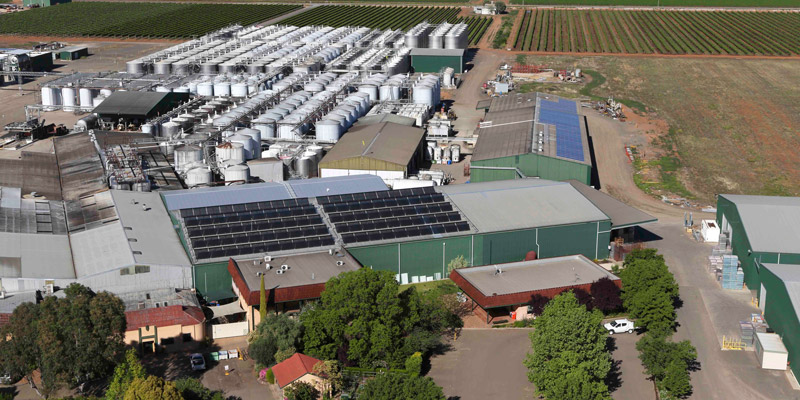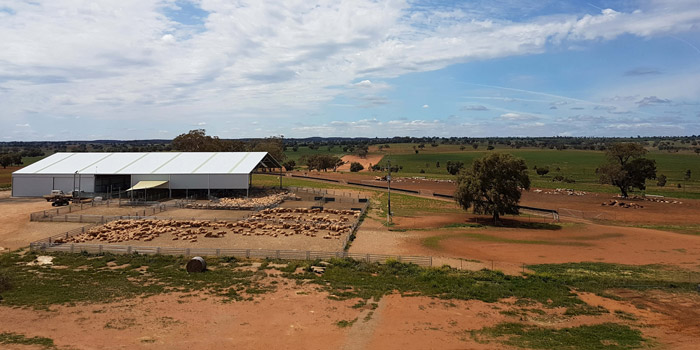Along with the rest of the country, and indeed the world, NSW is grappling with solving its twin climate challenges simultaneously: rapidly decarbonising, while also adapting to ongoing changes that are already locked in and affecting us today.
The twin climate challenges
Each of these challenges is large enough in itself to demand a complete transformation in our ways of working and living. But they can’t be tackled separately - we need to look for synergies and win-win actions that help us decarbonise while also boosting our resilience.
These challenges are a call to action for NSW businesses.
Creating ‘climate companies’
Businesses are getting increasingly savvy about identifying and managing their own climate risks. But staring down the barrel of these twin challenges - might business have a more profound and essential role to play?
According to Tom McQuillen from ReGen VC, a climate-focused venture capital fund based in the NSW Northern Rivers, the answer is yes, absolutely.
Our firm belief is that the iconic companies of the next thirty years are going to be climate companies
Tom McQuillen from ReGen VC
“When you think about the scale of the transition” that society needs to go through, “the opportunities are enormous.”
That explains why ReGen is backing start-up companies with bold visions and solutions that directly confront the twin climate challenges of decarbonisation and adaptation.
“We think venture capital is suited to a particular type of company, which is really high risk but with the potential for massive transformation.”
"We see quite allot of companies that act on both, "he says, pointing out several examples ReGen has recently invested in. Rhizocore is one.
"Rhizocore is building the equivalent of the Millennium Seed Bank, but for fungi”, he explains.
"Their first application is a fungus that produces inoculants, which you can plant alongside a tree. It significantly reduces sapling mortality and increases tree growth - it’s like a turbo-booster for trees.” Appling fungi this way can be both adaptive and preventative.
Tom continues: "Being able to grow forests faster means we can suck carbon out of the air faster, but it’s harder for trees to survive in a changing climate, a warming climate.
“Planting these alongside saplings reduces mortality and increases survival rates, which is adaptation.”
As Rhizocore – and plenty of other start-ups – demonstrate, there’s synchronicities in solving these twin challenges simultaneously.
They also show that adaptation is far more than just coping. At its best, it’s proactive and potentially transformational.
What should businesses do next?
There are two levels that a business needs to consider in its response – or adaptation – to the twin climate challenges.
The first is at the level of the business itself. Businesses should be looking to reduce their vulnerability to climate effects in ways that also reduce their emissions, or equivalently, look to reduce their emissions in ways that also boost their climate resilience.
To address this task, businesses need to understand both their business’ climate vulnerabilities and their emissions profile. Actions to address the former can be considered side by side with future actions reducing emissions, allowing synergies to be identified.
Changes in direction will most likely take place deliberately and incrementally over time, as routine business decisions – e.g. on assets, equipment or operations – begin to be informed by additional questions and considerations. Example questions could be:
How can we do this so that we also lower our emissions? What should we choose if we were trying to boost our resilience to climate impacts?
Trade-offs remain inevitable, but at least they can begin to be considered within the broader picture of a business’ emissions and vulnerabilities. Making different decisions is a necessary precursor to getting different outcomes.
The second level a business needs to attend to is its role in society’s larger transformations on the same climate challenges. There is little point a business getting its own house in order if it is fundamentally misaligned with the society-wide projects of decarbonising and building resilience.
Like it or not, there are many businesses in this camp at present, often unknowingly.
Consider, for example, that the sale of SUVs globally threatens to cancel out the reductions in fossil fuel use from the introduction of EVs. The emissions reductions of carmakers as companies mean little to nothing if the products these companies design, build and send out into the world make the global transition away from fossil fuels harder than would otherwise be the case.
Similarly, companies whose offerings lower the resilience of others in society – households, businesses, councils – will struggle to be helpful as society attempts to decarbonise and boost overall resilience. One example might be new subdivisions that ‘lock in’ private vehicle usage and isolate people from each other, geographically and socially, reducing their resilience to damaging weather events.
It’s important to remember that, for businesses, society’s transformation is the backdrop to their commercial futures.
Winners and losers
Transformation creates losers as well as winners. That’s why now is the best remaining moment to sense-check the alignment between your business activity and society’s directions of travel. That act can help to illuminate the validity of your current business strategy and reveal possible future strategies.
If your business can pivot its position to better capture the tailwinds of society’s transformations and avoid the risks, then making smart strategic and operational decisions now could mean the difference between continuing or not.
And if your business or investments just aren’t part of helping NSW prepare and position for a climate-affected future, well, maybe it’s time to cash out while you can.
In almost every sector and industry, there are green shoots ready to take your place.
Join two days of discovery, collaboration and innovation from 4-5 December at the 2023 AdaptNSW Forum.
Articles
Find out how De Bortoli Wines is reducing its greenhouse gas emissions, operating more sustainably, and saving hundreds of thousands of dollars each year.
Find out how digital technologies can help farmers become more resilient to climate change and improve farm productivity.


